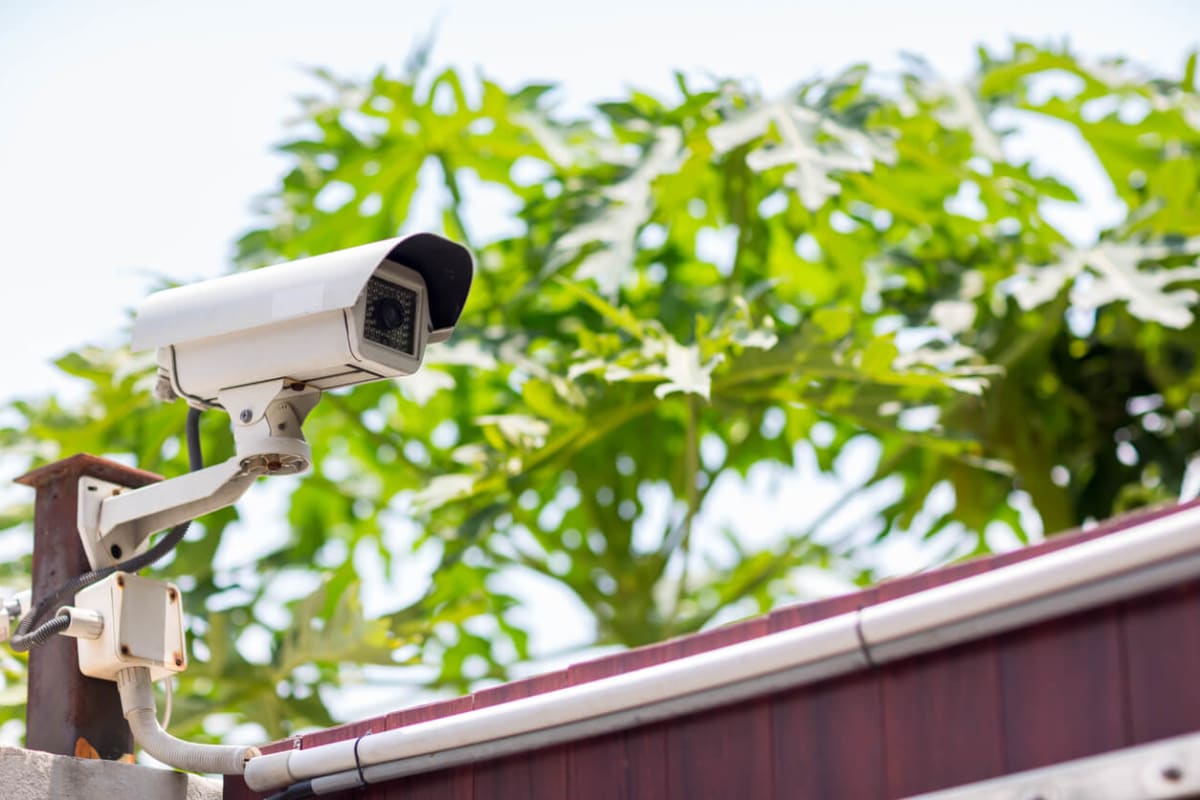Can My Landlord Install Security Cameras?

Many tenants wonder, “Can my landlord install security cameras?”
This question often arises from concerns of wanting the safety of a rental security system, but also not wanting any video surveillance to invade a tenant’s privacy.
There are many reasons why a landlord would want to install a security system on their rental properties. After all, it’s their investment and they likely want to protect both their property, their tenants, and their tenant’s property.
Of course, tenants also want to feel safe in their homes. While the addition of video surveillance cameras might help some renters feel safe from damage to their rental or theft of their personal property, seeing a camera might also induce feelings of being spied on as well.
So where is the line between landlord protection and tenant privacy?
Fortunately, there are legal regulations that satisfy both a landlord’s desire to protect their property from vandalism and a tenant’s desire for privacy while navigating the installation of security cameras on a rental property.
Can My Landlord Install Cameras Without Me Knowing?
It depends.
If your landlord is installing VIDEO-only security cameras in a public area, it’s likely that they do not need to advise you in advance before installing video surveillance.
However, laws are much stricter around audio surveillance recordings. When it comes to audio, typically legal regulations stipulate that both parties have to be aware that a recording is taking place.
So, if your landlord has installed security cameras in a public hallway, they are probably within their right—as long as there’s no audio being recorded.
Can My Landlord Install Cameras Without Notice?
Again, the answer here is it depends.
Tenants have a reasonable expectation of privacy and any video surveillance should not infringe upon that.
Generally, cameras should only be installed in public spaces and visible to everyone so renters are aware they are being watched. And, as noted above, there is much more regulation around wiretapping and audio recordings.
In general, landlords should make tenants aware through notice or communication that security cameras will be installed and where. This is not only a courtesy but also a legal protection.
Can My Landlord Install Cameras In Public Hallways?
Yes, landlords can install cameras in public hallways.
In most cases, access to these areas is open access and landlords might want to ensure that no illegal activity (such as property damage or theft) occurs.
This can also be an added security measure that benefits renters. For example, say you have an Amazon package marked as delivered, yet arrive home to find it missing. You can give your landlord a call to see if you can review the footage and who stole your package.
(Note: You might discover that your neighbors are toilet paper thieves—LOOKING AT YOU 2B!)
Can A Landlord Install Cameras Inside My House?
No.
In your home, tenants have the expectation of reasonable privacy. Any security or surveillance cameras discovered in a renter’s house are likely illegal.
If you find surveillance technology in your home—or even located in a public area that points directly into your windows—those security cameras would be considered illegal surveillance.
Can My Landlord Install Security Cameras?
Yes, landlords can install security cameras in public areas where residents have no reasonable expectation for privacy.
However, landlords can not install security cameras in private residences or in public areas where tenants have an expectation of privacy. This includes communal bathrooms, laundry rooms, changing rooms, locker rooms, windows, etc.
It’s important for landlords and tenants to thoroughly research and understand surveillance laws when it comes to their specific state landlord-tenant laws and local municipalities.
Note: This content is not intended to substitute, replace, or be construed as professional legal advice. It is for referential purposes only. It is not meant to replace the advice of your legal counsel, legal representation, and or lawyer. Consult your legal representation to ensure your security cameras are compliant with landlord-tenant laws.
